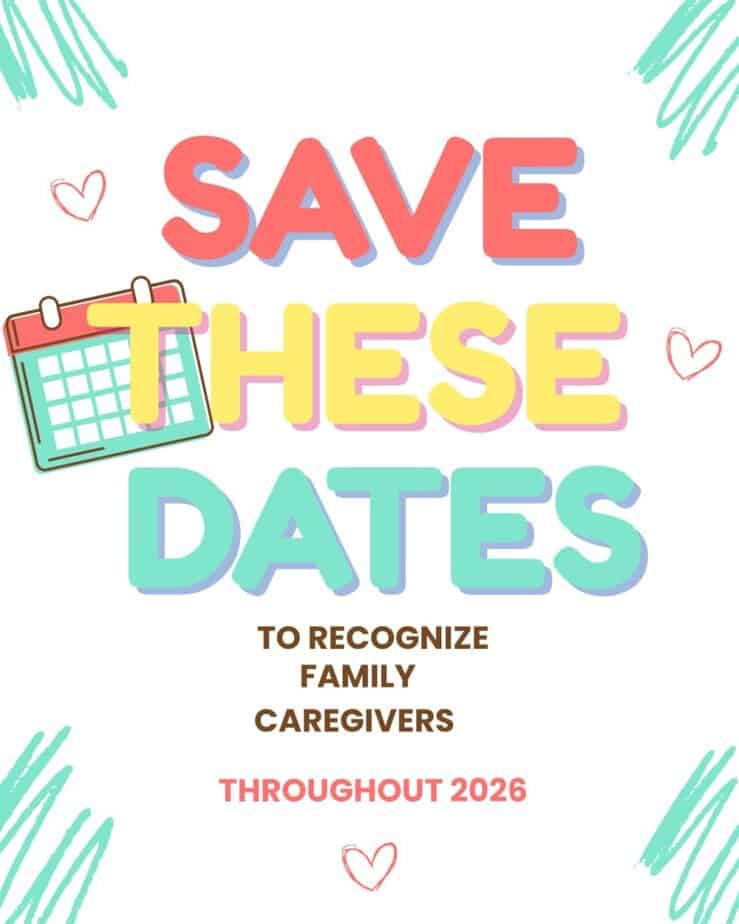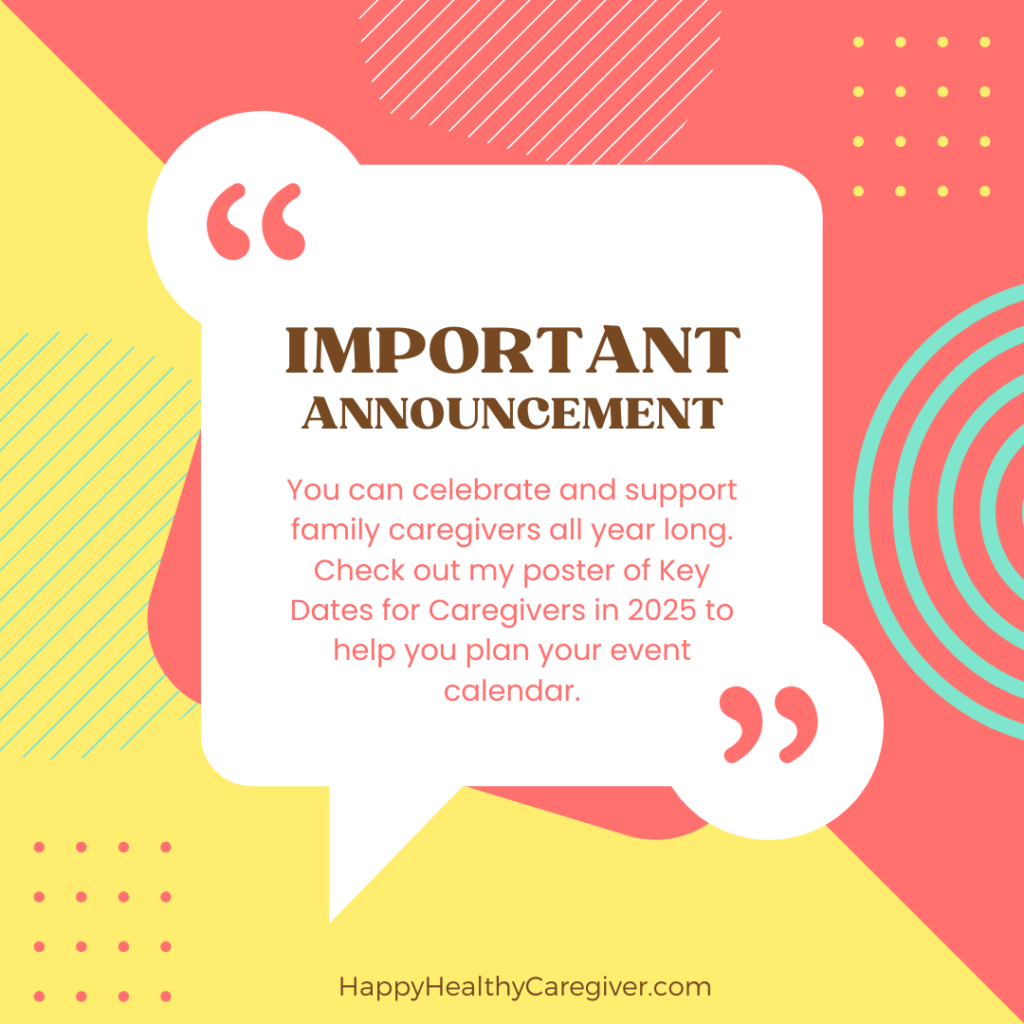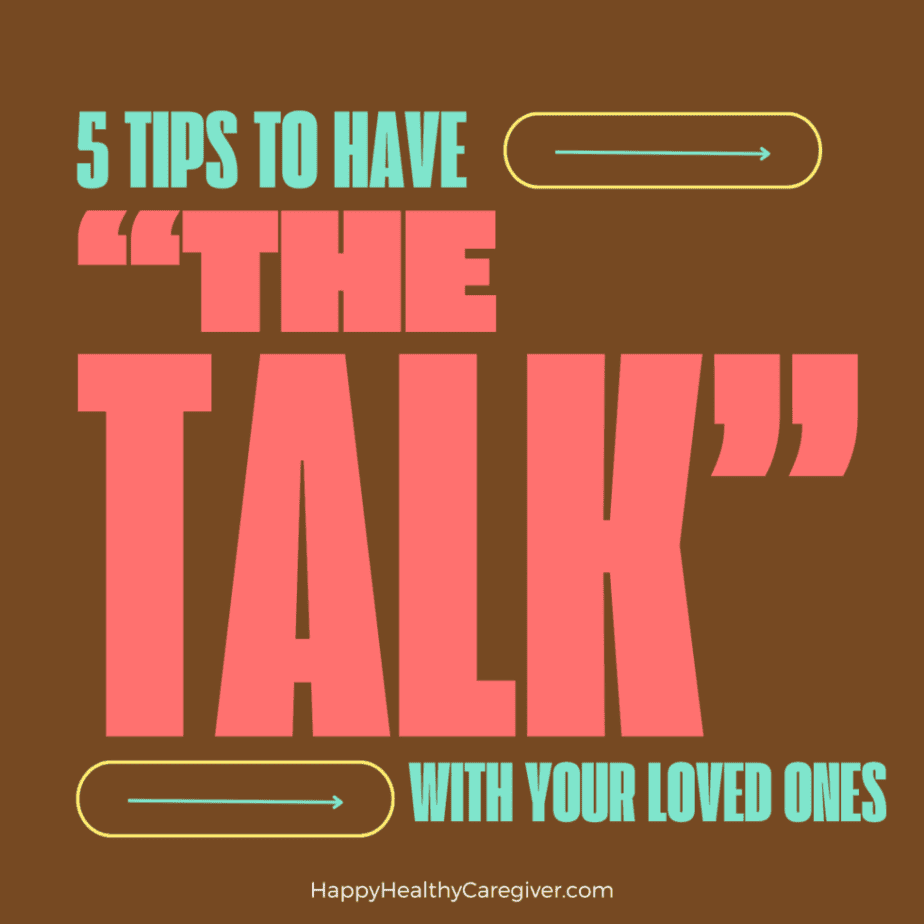A guest post written for Happy Healthy Caregiver by Perry Rickard
In August 2018, my grandmother lost her husband of 71 years. Before he passed, I drove my grandmother, Ooma, as I called her, to and from the hospital. When we got home, Ooma’s first priority was to check on her plants and ceramic hippos. I remember finding that very odd. “Really?” I thought. “You are worried about the hippos?!”
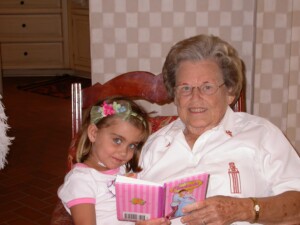
After Pappy passed, Ooma sold her house and moved into a senior living community. As a family, we sorted through her plants, hippos, and all the other items she accumulated from living in a house for over 40 years. She took a few things with her, and the rest was distributed among the family.
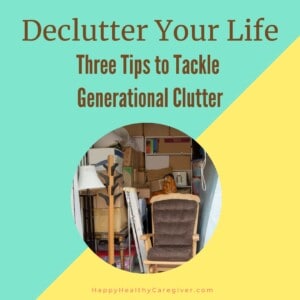
The Side Effect of Generational Clutter
Although getting some of my grandparents’ items was amazing, I kept too many! I panicked that I’d lose connection to my grandparents if I let the items go. I feared that I would need that very special lemon squeezer one day. The clutter occupied my brain. I spent too much time worrying about my connection to the past and preparation for the future.
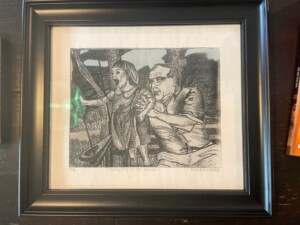
After a few years passed, I grew weary of all the worrying. I wanted to return to the present. I wanted to stop caring for the stuff that was not helping me care for myself. It was time to do the hard work of deciding what I would keep and what I could relinquish. Reflecting, here are the three steps that helped me.
Three ways to tackle generational clutter
- If it’s broken, let it go.
My grandfather owned a puzzle composed of different types of candy bars. He kept it in his office, and I would stare at it whenever I visited him. He worked in the candy business, and I think I made up this story that this puzzle meant a great deal to him and his business.
I couldn’t tell you the whole story, but I wanted it badly! Unfortunately, the puzzle had seen better days. Every time I tried to move it…puzzle pieces went everywhere. I could have researched special glue, framing, or this or that. But honestly, I did not have the energy to take on another project.
It sat in my closet – broken – for years. Until I let it go.
It’s okay if you don’t have the energy to fix it. You probably won’t have the energy later, either.
2. Use it or lose it.
I’m borrowing this phrase from Matt Paxton, a downsizing and cleaning expert and the host of a 2-time Emmy nominated TV show, Legacy List. To paraphrase his words, use it or lose it means that if you don’t use it, you’ll lose it…mentally.
In other words, discard the item if you cannot think of a function.
My great-grandmother gifted me the glass container below. Whether I remove nail polish or makeup, I use this item daily because it holds my cotton rounds. I don’t know what my great-grandmother used this container for, but I’ve found a function for it in my current life. I’ve permitted myself to use the item in a way that works for me. Using the use it or lose it mindset, this item is a keeper.
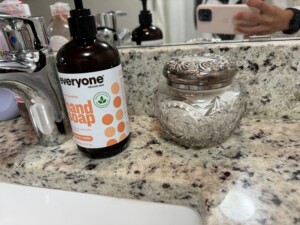
My grandmother gifted me this entertaining set. When I look at it, it makes me feel guilty that I don’t host dinner parties! I could use it as my daily silverware versus my current Target set, but I like the one I’m using. I could research the price, but I don’t have the energy. Since I have not found a function for this entertaining set and don’t have the energy to sell it, I will donate it to a family that will cherish it more than I do. Ooma will feel happy that someone else cherishes her items versus sitting in my cabinet.
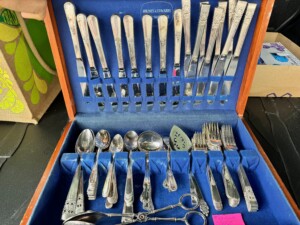
3. Don’t go at it alone.
Part of the human experience is being attached to our stuff. When I get stuck on something I am trying to decide, I phone a friend or family member or seek advice from a professional organizer. If an older adult or someone with limited energy needs to be involved, consider how long they help with purging and organizing and how long you can go. Decision paralysis is real!
One pro tip for combatting decision paralysis is to separate your generational clutter into categories. That way, your brain can focus on selecting the best-kept items from one category instead of switching back and forth between entertainment goods, electronics, and photographs.
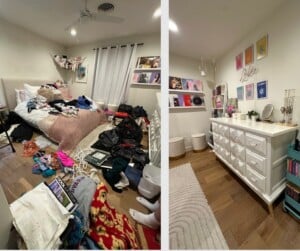
Declutter your space. Declutter your life.
Decluttering has helped me feel less guilty and overall happier. Decluttering is also a continuous journey.
You don’t have to be a pack rat or own multiple storage units to benefit from decluttering. Decluttering your space is vital to living a happy, healthy life – especially as a caregiver. A clutter-free home allows people besides the caregiver to walk in and find what they need. In other words, a decluttered space invites you and simplifies the process of delegating more tasks! A decluttered environment also improves mood, focus, and sleep. Even if you can only declutter 10 minutes daily, your future self will thank you.
Perry Rickard founded Bluebird Organizing to support others in creating and maintaining clutter-free spaces. She particularly enjoys working with people who are undergoing life transitions.

